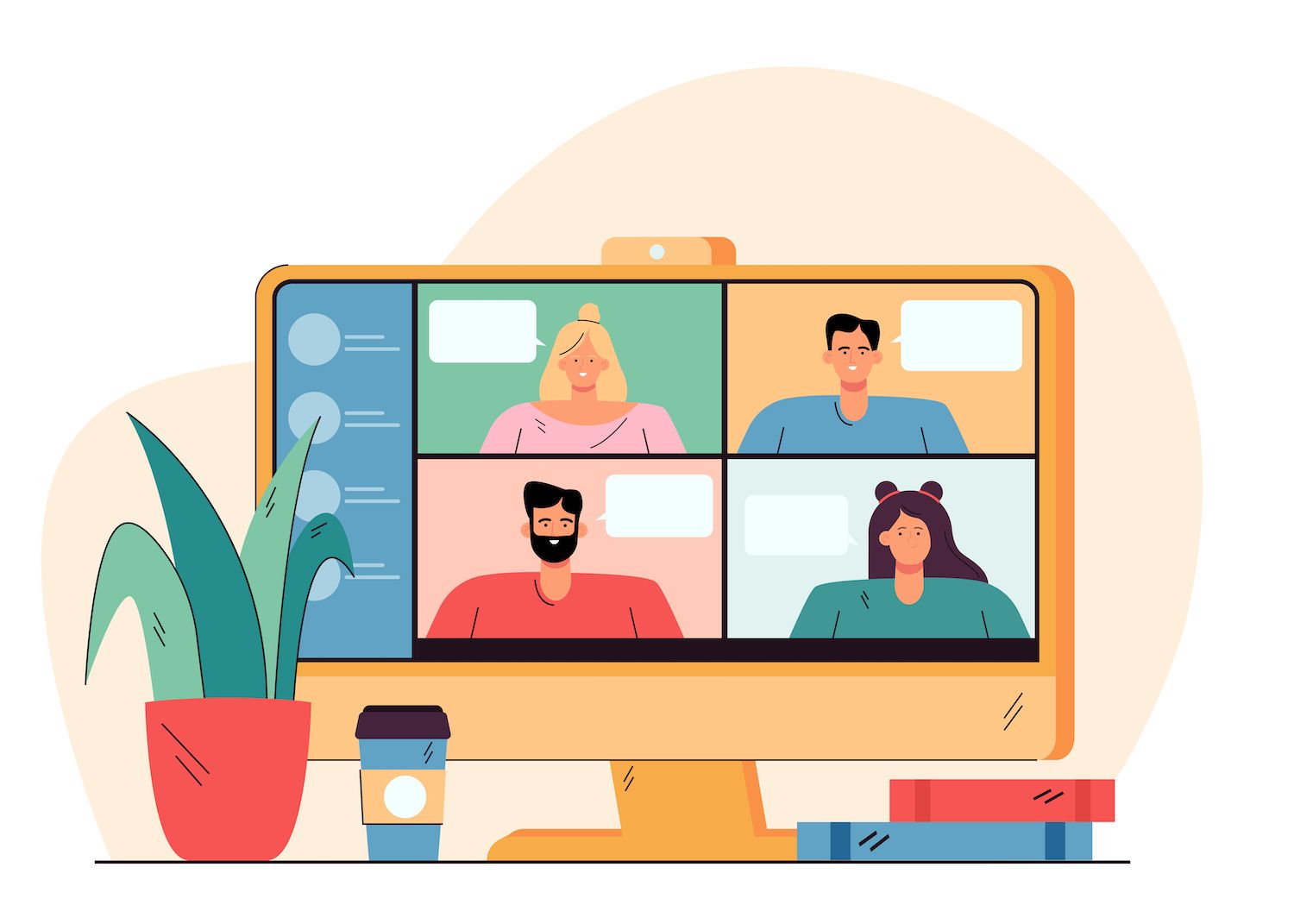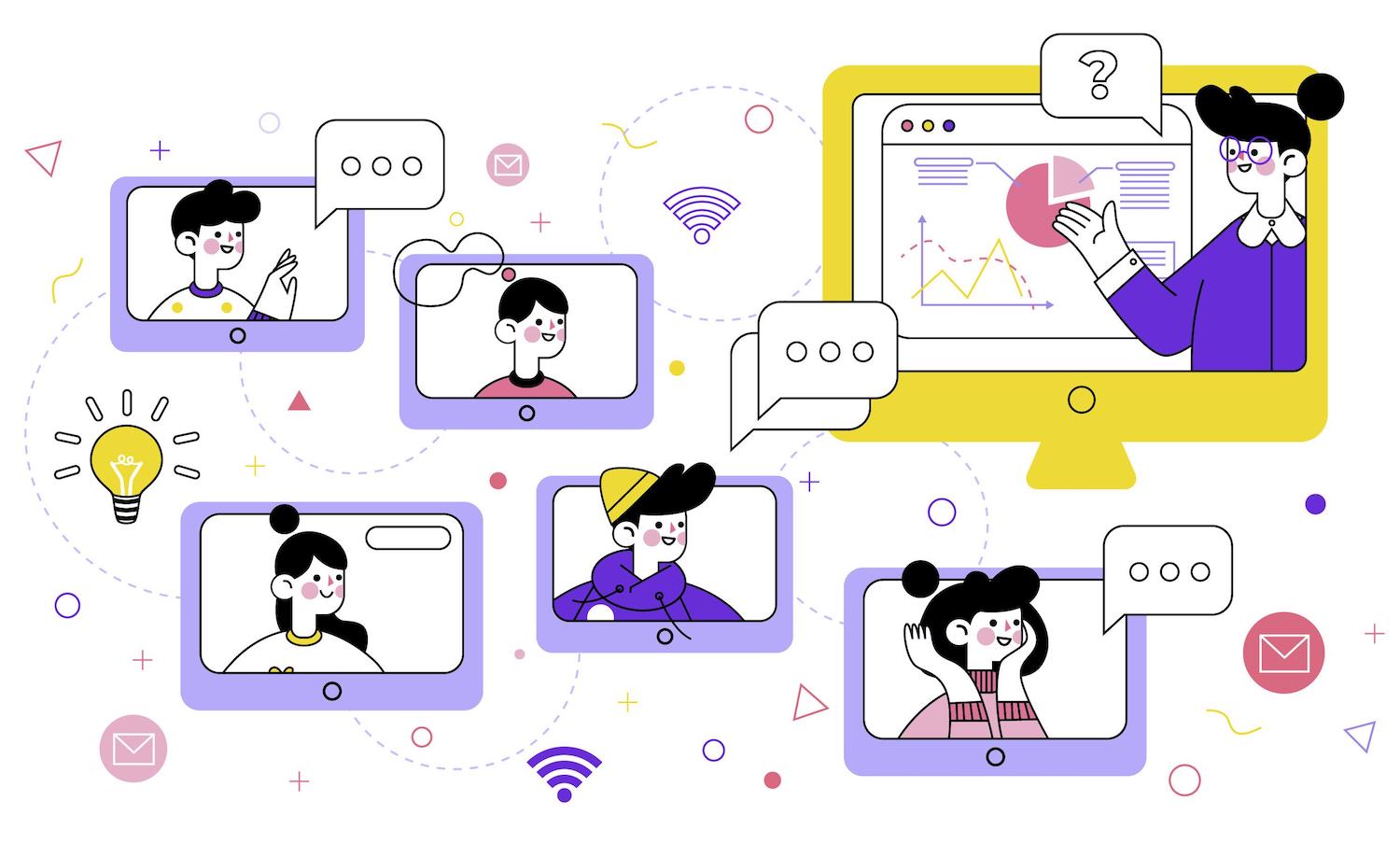What Is User-Generated Content? + Examples |
What was the process that helped Meta come up with a platform which generates $44 per user? How can LinkedIn make $8 billion by charging everyone including premium members, recruiters to employers?
Take a look at the billion-dollar social media companies and you'll see that their valuations are directly linked to the users they serve. The user-generated content that they create is the reason to these huge companies. But it's also the thing that powers online forums, brand communities, Discord servers, Medium, and even the comments part of blogs, if it's still a thing. In addition, as a social platform, we've got a front-row seat to the ways in which UGC makes for thriving communities-many of which become 6- or even 8-figure companies in their own right.
In this post We'll be discussing:
- What user-generated content are.
- The reason it's useful (plus pros and pros and).
- Examples of UGC.
- How do you unlock UGC for your company or brand. company.
What is user-generated content (UGC)?
User-generated content refers to any type of content that's created by users of the platform, not the platform's owners, regardless of whether the material is written, video images, texts, or other than that. Most social media platforms rely on user-generated content, but so do many other online spaces like websites, online forums, and online communities. Many of these places run with a model of business where the platform offers a software and the users contribute the material.

Even if you're not a big social media company You can still use UGC to benefit yourself. For example, most people are successful thanks to content created by users, when people get together to build a community, learn something they are interested in as well as engage in great conversation.

What does it mean? UGC helps businesses
Remember the application Clubhouse? Pitched as an exclusive social listening app and valued at a whopping $4 billion in 2021. It was exclusive (you required an invitation) as well as featured regular appearances by big stars like Oprah Winfrey, Elon Musk and Kevin Hart, and it was a huge success.

But as the pandemic restrictions came to an end, Clubhouse had a tough time retaining those users-recently laying off employees. In addition, the number of users who are active on Clubhouse has fallen for a couple of years-roughly 10 million weekly-in comparison to Pinterest boasts 482 million monthly users.
The Threads platform is an fascinating case. It hit 100 million users in 4 days! But in the following 210 days, it only reached 60 million. The increase has mostly plateaued-although Meta does not make its data public anymore.

Source: Statista
160 million active users on Threads is nothing to sneeze at. But its rival X (Twitter) has over 600 million monthly users.
The success or failure of these platforms, as well as the billion-dollar valuations, hang upon two aspects: 1. Are people showing up? 2. Are they creating contents? The rest is irrelevant.
This is evident with membership-based communities as well. We have found that we are able to predict with 93% precision how an online community can prosper or fall. Two things matter: 1. Do people sign up? 2. Do they have a relationship with a person? It was such a powerful data that we've been diving into developing a software system that can do more than provide hosting for UGC and is focused on helping users connect to each other.

The foundation of all it is the social aspect of an online social network. Social network theory suggests that social networks are human-centered communities that are based on. What is it that makes Facebook among the largest platforms that has more than three billion people using it? Perhaps it's due to the fact that Facebook is actually built on the social network that is in person. You might get mad at someone you don't know on Twitter and decide to delete the account. But if Facebook is where you communicate with your mom or grandma or sell items in your garage chances are you'll at least have it in the meantime.
To allow UGC to be able to build an enterprise, it shouldn't only be a simple matter of dumping content into the void. Making endless AI social media posts ain't the best way to grow your business.
And that's why the social networks and blog comments as well as reddit-the true value of these platforms lies in the interaction.
UGC is the term used to describe engagement. Content creators. Readers of articles. If you do not have UGC, you don't have engagement.

user-generated content has benefits and drawbacks
User-generated content has lots of advantages for users who host or own platforms.
Involvement: Engaging users will allow content to be created quicker and farther than can be achieved by a single website or a company. The social media giants make little to no content themselves. For example, YouTube estimates that around 500 hours of content is posted every minute! It's impossible for any company to achieve that, even with AI.
User-directed discussions: There are all sorts of amazing and bizarre things people choose to discuss online. UGC allows users to create discussions and posts they're passionate about.
Diverse viewpoints: UGC gives people voices-especially those who may not normally get a say in the media. Anyone can contribute. Everyone has the ability to share their thoughts.
The network effect The network effect is the description of the way that communities and platforms grow more valuable with each new member they gain.
Enhancing customer experience: For a company or brand, user-generated content can be utilized to enhance the user experience, and also customer service. For instance the Apple customer community is comprised of users who respond to Q&As at their own pace.

But there can be some disadvantages with user-generated content as well:
- Incorrect and false information: With no gatekeepers UGC allows anyone to create any thing. With 55 percent of Americans believing that misinformation is a problem which needs to be dealt with, UGC can be a element of the issue.
- Intimidation and bullying: UGC from content creators as well as people responding (e.g. in the comments) may refer to intimidation, the use of bullying or targets a specific individual or group.
- Moderation: for community Hosts as well as social media firms Moderation is now a vital part for hosting UGC.
But don't be discouraged by this from allowing the creation of content by users. The negative impact of this are mitigated by an effective community moderation system and guidelines. The ability to provide users with a means to assist in moderation can go an extremely long way (e.g. the "report this post" button). ).
When your users invest the time and effort into your place, the majority of them are likely to want the experience to be positive. Most of them are happy to help by limiting their consumption.
Pros of user-generated content
- Scale content creation fast
- Let in diverse voices and points of view
- increase organic reach and conversation
- UGC could bring new users onto your platform (e.g. if it gets shared), growing your community
Cons of content created by users
- More risk of obtaining false or misinformation
- Bullying and intimidation
- Moderation is needed
Content created by the user
It's a Mighty Network
A Mighty Network is a community platform that gives Hosts an opportunity to unite communities to change the lives of people. Members can take part in discussions, live events, courses, livestreams, and more. Community that are flourishing always enjoy great participation from members. (See the following examples ).

Founded in 2010, the photo-sharing app started in the hope of letting users share pictures with filters. It grew quickly in popularity, and has since expanded to include more features like Reels and has over two billion users.

YouTube
In the previous paragraph, we mentioned that there's 30,000 hours of content added to YouTube each hour. You'd need more than 1900 years just to watch the latest uploaded videos. YouTube is the biggest with regards to UGC. And the fact that 30 percent of youngsters say that they are YouTubers "dream job" it's made an impact in our collective imagination. Whether they can monetize and earn money from views or it's not possible, YouTube is a juggernaut for UGC.

Blog Comments
It's not as common nowadays, but starting blogs and receiving blog comments were once the OG of content created by users. You can still see this happening on a few blog sites, but especially on blog sites such as Medium. Certain news sites on the internet have this issue as well.

Local Reviews
There's been a lot of discussion about social media for a while, however reviews for restaurant, attractions, etc. are available on Google or Yelp can be a fantastic example of UGC.

Product Reviews
Similar to local reviews when you read product reviews prior to purchasing something from Amazon or another E-commerce site .
Forums
If you've spent any moments at all on the social media sites like reddit and Quora, you'll know there are armies of people who hang out in those places, making the material that keeps these websites running. Reddit is projected to have 53 million users by 2025.

Strategies to unlock UGC
1. Create amazing content
First and foremost, UGC will most likely be derived from quality material. There are tons of applications available to assist you create a LOT of content. In terms of technology, you can incessantly create AI text, and then share it.
But great content stands out and starts conversations. When the content is genuine and authentic, readers are compelled to take action and share their thoughts and even write.

2. Create niche spaces
Think about who controls algorithms. Hootsuite states that the average percentage of engagement for a Facebook Page post is 0.07%. What kind of UGC can thrive in a social media environment in which it isn't seen? Are you the type of person who wants to make content that nobody is able to see?

It is best to make non-algorithmic spaces for people to collaborate and exchange ideas. Email. Online communities. Chat rooms. Apps. Spaces must be created that aren't algorithm-driven to really let you unlock UGC.

3. Memorable social media campaigns
Although algorithms can be unpredictable, UGC is still possible through social media-based campaigns. Select the platform you prefer, and then create content that is engaging. You can also find creative prompts to get people talking. Adding in a competition or prize to reward contributions could increase engagement!

4. Reviews
One of the most important forms of UGC to a company's brand are reviews, testimonials and other feedback that is positive (negative feedback is valuable too however in a different method.) It is important to obtain UGC from review websites if you have a product, or local reviews if you're using Google is vital as more of us are influenced by reviews when making purchasing decisions. Also, if you're using testimonials on your website, UGC can be really beneficial in that regard as well.
If you want to get UGC feedback, make sure to inquire. Simple prompts to encourage users to write comments or reviews can make a a big difference in the amount of activity.
5. Gamify contribution
If you're looking for and require UGC, gamifying the whole process could make a huge difference. Like Apple's support community is heavily user-driven which includes a large number of volunteer who come to answer questions. The process has been gamified with achievement levels and an individual community that is only available to the most prolific contributors. By incorporating rewards and gamification, you can incentivize creating content.
Conclusion
The final analysis User-generated content can be a huge asset. Many of the top brands around the globe have relied on UGC to catapult to multi-billion-dollar valuations. It doesn't matter if it's billions users creating content or a dedicated community sharing their thoughts, UGC taps into human creativity in a way which is amazing.
